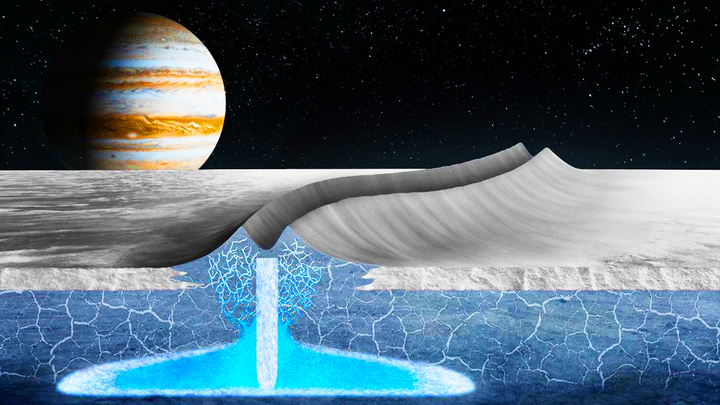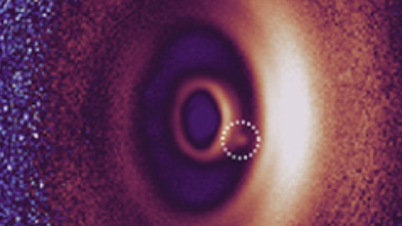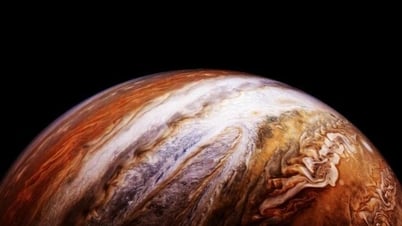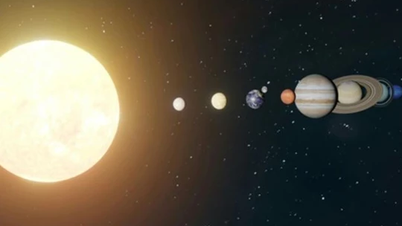Europa, Jupiter's fourth-largest moon. This celestial body is considered fascinating and unique among Jupiter's moons, due to the possibility of a vast ocean of salt water lying beneath its icy surface.
In fact, scientific observations have shown that Europa’s ocean may contain more than twice as much water as Earth’s oceans. Because of these interesting features, it has been closely studied by the scientific community for decades. Now, NASA’s next Europa Clipper mission is no exception, aiming to explore the moon’s potential to harbor life itself.

Europa, Jupiter's fourth-largest moon, has been closely studied by the scientific community for decades. (Photo: Blaine Wainwright)
NASA's Europa Clipper mission, scheduled to launch in October this year, will study the surface and subsurface of Europa to determine whether it has the right conditions for life, whether Europa actually harbors an ocean beneath its ice, how deep that ocean is, and whether the chemical composition of that ocean is friendly to bacteria or other life forms.
Set to launch from Florida’s Kennedy Space Center in October, the Europa Clipper spacecraft will be headed for the moon Europa. In fact, Europa Clipper won’t be landing there. Rather, after arriving in the Jupiter system in 2030, the spacecraft will orbit Jupiter for four years, make 49 flybys of Europa, and use its powerful scientific instruments to study the celestial body’s habitability.
These scientific instruments include the Europa Imaging System (EIS), Europa Thermal Emission Imaging System (E-THEMIS), Europa Ultraviolet Spectrometer (Europa-UVS), Europa Mapping Imaging Spectrometer (MISE), Europa Clipper Magnetometer (ECM), Plasma Magnetic Sounder (PIMS), Europa Sounding and Evaluation Radar, MAss Spectrometer for Planetary Exploration/Europa (MASPEX), Surface Dust Analyzer (SUDA),...
“ These science instruments will work together to answer the most pressing questions about Europa,” said Bob Pappalardo, a planetary scientist at NASA’s Jet Propulsion Laboratory in Pasadena, California. “We think there’s an ocean there, there’s an ocean everywhere on Europa. Basically, everywhere on Earth that has water, there’s life. So is there life on Europa?”
Despite the challenges, the potential benefits of discovering life on Europa are huge, according to Bob Pappalardo. Finding microbial life forms would revolutionize our understanding of the universe, and our planet’s place in the Solar System, opening up new avenues for space exploration.
Source




































![[Photo] Parade to celebrate the 50th anniversary of Laos' National Day](/_next/image?url=https%3A%2F%2Fvphoto.vietnam.vn%2Fthumb%2F1200x675%2Fvietnam%2Fresource%2FIMAGE%2F2025%2F12%2F02%2F1764691918289_ndo_br_0-jpg.webp&w=3840&q=75)
![[Photo] Worshiping the Tuyet Son statue - a nearly 400-year-old treasure at Keo Pagoda](/_next/image?url=https%3A%2F%2Fvphoto.vietnam.vn%2Fthumb%2F1200x675%2Fvietnam%2Fresource%2FIMAGE%2F2025%2F12%2F02%2F1764679323086_ndo_br_tempimageomw0hi-4884-jpg.webp&w=3840&q=75)







































































Comment (0)